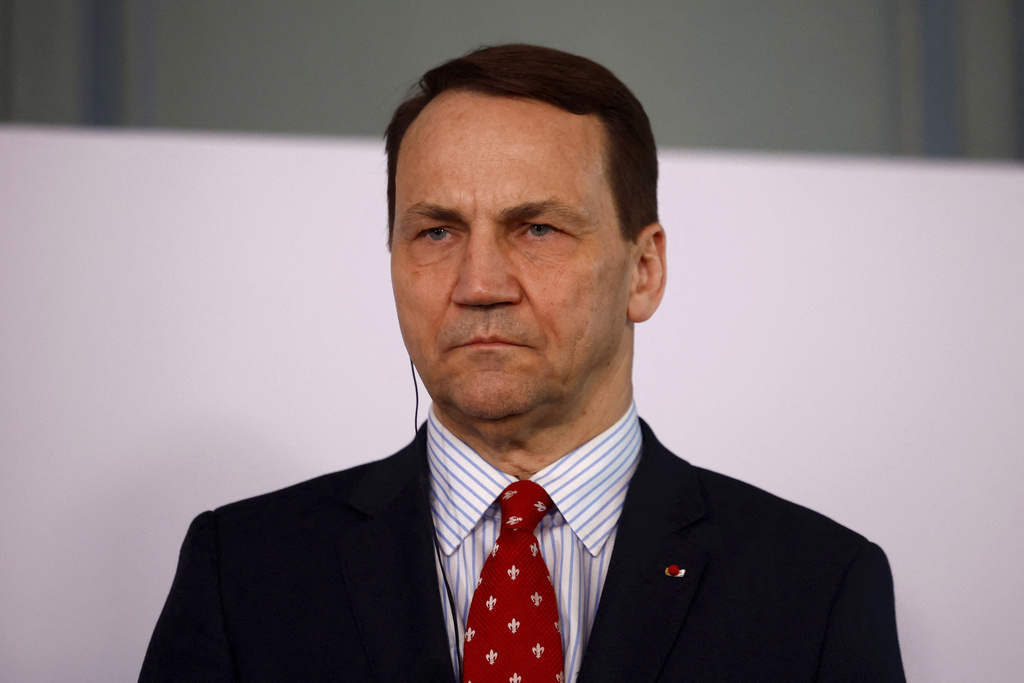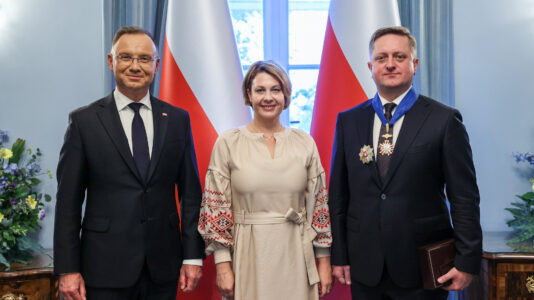On Tuesday evening, during a TVP Info interview, the head of Polish diplomacy, Radosław Sikorski, addressed comments from Hungarian Prime Minister Viktor Orbán and Hungarian Foreign Minister Péter Szijjártó. Szijjártó had previously stated on social media that Polish diplomacy “is sinking in a swamp of lies,” alleging that the Hungarian government is isolated due to Orbán’s “peace mission.”
The Polish Ministry of Foreign Affairs reacted earlier to Orbán’s Saturday speech, where he accused Poland of conducting business with Russia through intermediaries. Deputy Foreign Minister Władysław Teofil Bartoszewski denied these allegations.
When asked about Orbán’s “frontal attack on Poland, calling it hypocritical and sanctimonious,” Sikorski remarked that this was not the first such attack. He emphasized that the actions of the Hungarian prime minister towards Ukraine and Russia do not align with Poland’s interests.
Regarding the Polish response and why the Hungarian ambassador has not been summoned, Sikorski stated, “We have other ways to respond.” He highlighted that “different decisions will now be made in the EU,” noting that unlike Poland, Hungary still has its EU funds blocked.
Addressing accusations from the Hungarian premier that Poland might be circumventing sanctions by conducting business with Russia, Sikorski confirmed he had checked relevant data on Tuesday. “I even quoted this at the Council of Ministers: official data shows that we import almost nothing from Russia — almost 2 percent,” he said.
Sikorski added that if Orbán has other data, he “would gladly initiate appropriate procedures.”
Sikorski criticized Hungary’s position between Brussels and Moscow as unfit for an EU presidency. He noted that while the EU does not diminish national interests, it requires its members to consider the collective interest of the community, especially during a presidency aimed at achieving consensus.
“I think Prime Minister Orbán is betting on a Donald Trump victory, who remains the favorite in the American elections, and believes that these special relations with the potential U.S. president will not only rebuild his political position but even secure a dominant one,” said Sikorski.
Sikorski claimed he saw an attempt by Orbán to absolve Vladimir Putin. He was also asked about the Hungarian government easing visa restrictions in July for economic migrants from Russia and Belarus, allowing them to enter Hungary under simplified rules. This move has raised concerns, including from Manfred Weber, leader of the European People’s Party (EPP), about potential Russian spies entering the Schengen Zone.
Sikorski expressed a desire to learn more about the issuance of these “national cards” by Hungary. “We need to check this,” he emphasized.
He reminded that Hungary is blocking a total of €6 billion for member states, complicating preparations to deter Putin.
If the easing of visa restrictions in Hungary is confirmed, Sikorski warned it could pose a problem for the entire Schengen Zone. “We must verify the compliance of such a decision with the Schengen Code,” the Polish foreign minister stated, recalling that a procedure under Article 7 of the Treaty on the European Union has been initiated against Hungary.






